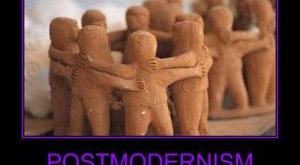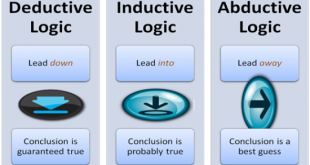Consider a genuine challenge to: ‘April showers have always brought May flowers. So, that April is showery is a good reason for expecting May to be flowery.’ You question whether this is a good reason … How could I satisfy you as to the goodness of my reasons in the present case? That I have lived through 35 showery Aprils and flowery Mays in several parts of the northern hemisphere would be relevant. So would national and international meteorological records. So would botanical data...
Read More »‘Observation is theory-laden’ — fashionable philosophical rubbish
‘Observation is theory-laden’ — fashionable philosophical rubbish Now our slogan is that observation is theory-laden … The slogan cannot be literally true. If anything is ‘theory- laden’ it cannot be observation but rather statements made on the basis of observation. Observation is simply an act that humans and other creatures perform, a special kind of event or process occurring in the nervous systems of humans and other creatures. How can an act or event or process be ‘theory-laden’? It...
Read More »Why science necessarily involves a logical fallacy
Why science necessarily involves a logical fallacy In science we standardly use a logically non-valid inference — the fallacy of affirming the consequent — of the following form: (1) p => q (2) q ————- p or, in instantiated form (1) ∀x (Gx => Px) (2) Pa ———— Ga Although logically invalid, it is nonetheless a kind of inference — abduction — that may be strongly warranted and truth-producing. Following the general pattern ‘Evidence => Explanation => Inference’ we infer...
Read More »Time — a question of life and death
Time — a question of life and death It is thus seen that the time-dimension is completely ignored in spite of its crucial role in problems of this sort. For let us assume, for example, that the probability of some event E in a stochastic structure of outcomes is 1/10 000. Small though this probability is, there is a very high probability, 1-1/10000000000, that E should occur at least once in 230 000 outcomes. Now, if one outcome occurs every second, we need be willing to wait only three...
Read More »LOGIC of science vs. METHODS of science
LOGIC of science vs. METHODS of science [embedded content]
Read More »Deduction — induction — abduction
Deduction — induction — abduction In science – and economics – one could argue that there basically are three kinds of argumentation patterns/schemes/methods/strategies available: Deduction Premise 1: All Chicago economists believe in REH Premise 2: Robert Lucas is a Chicago economist —————————————————————– Conclusion: Robert Lucas believes in REH Here we have an example of a logically valid deductive inference. In a hypothetico-deductive reasoning — hypothetico-deductive confirmation in...
Read More »Axiomatics — the economics fetish
Axiomatics — the economics fetish Mainstream — neoclassical — economics has become increasingly irrelevant to the understanding of the real world. The main reason for this irrelevance is the failure of economists to match their deductive-axiomatic methods with their subject. The idea that a good scientific theory must be derived from a formal axiomatic system has little if any foundation in the methodology or history of science. Nevertheless, it has become almost an article of faith in...
Read More »Bayes theorem — what’s the big deal?
Bayes theorem — what’s the big deal? The plausibility of your belief depends on the degree to which your belief–and only your belief–explains the evidence for it. The more alternative explanations there are for the evidence, the less plausible your belief is. That, to me, is the essence of Bayes’ theorem. “Alternative explanations” can encompass many things. Your evidence might be erroneous, skewed by a malfunctioning instrument, faulty analysis, confirmation bias, even fraud. Your...
Read More » Heterodox
Heterodox







